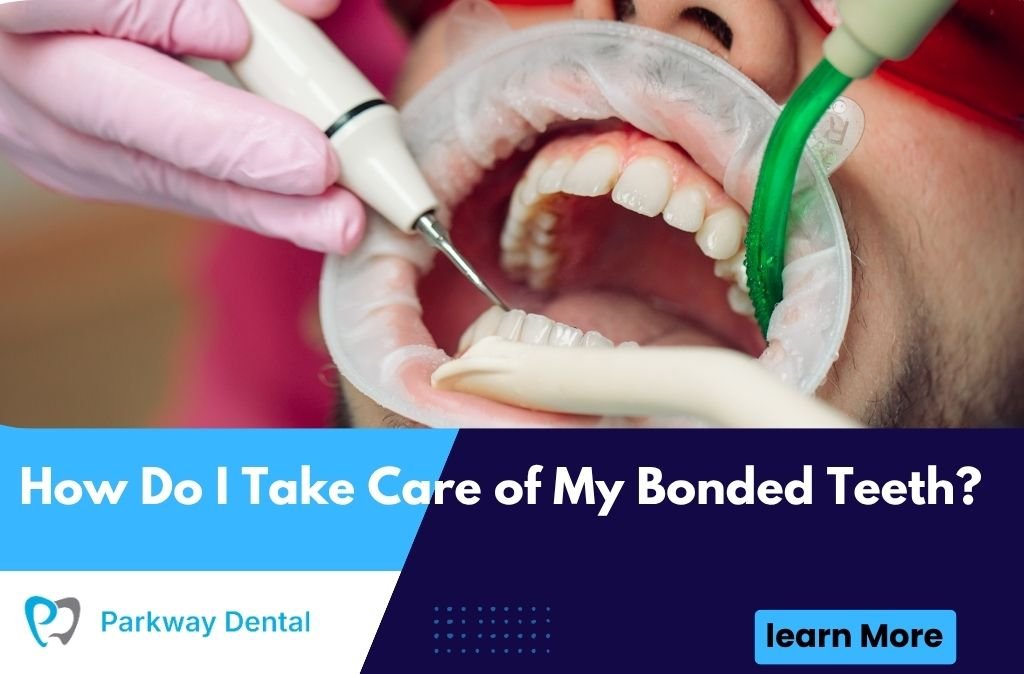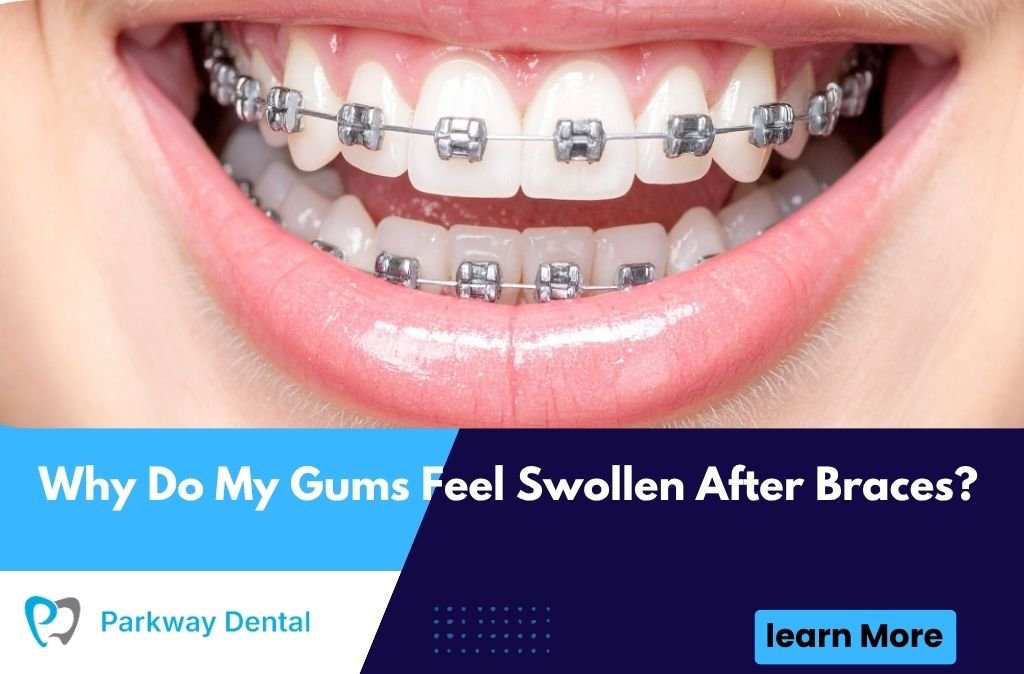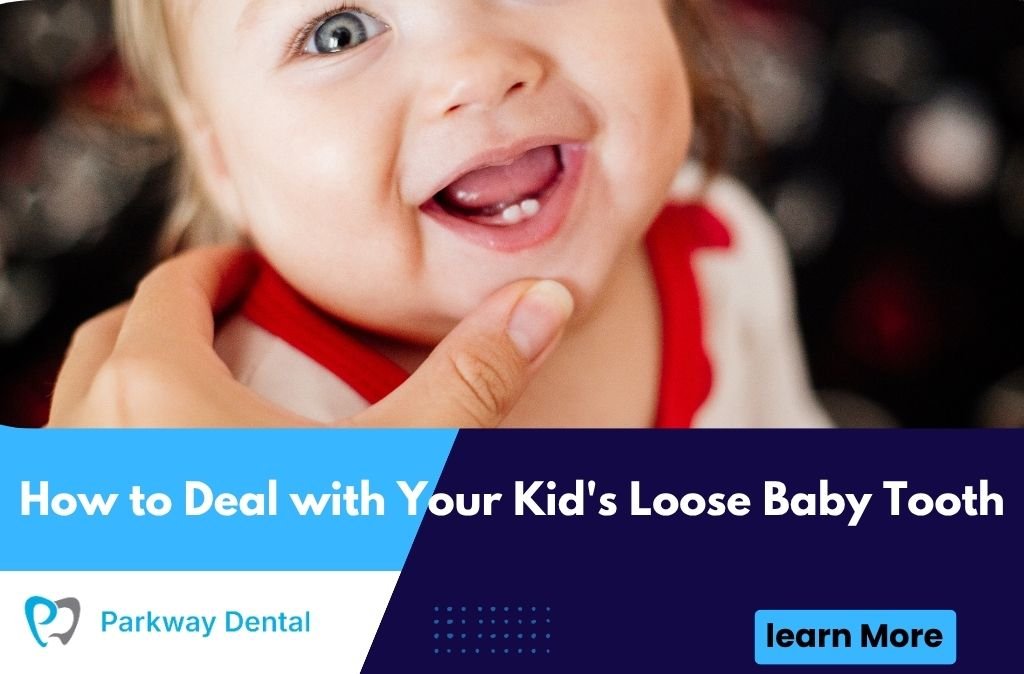Dental bonding is one of the simplest and most effective ways to restore chipped, discolored, or uneven teeth. It improves your smile in just one visit — but like any cosmetic treatment, it requires care to keep it looking great for years.
If you’ve recently had your teeth bonded, you may wonder what daily habits can help you maintain the results. This guide explains everything you need to know about caring for your bonded teeth — from cleaning routines and food choices to lifestyle adjustments and long-term maintenance.
Table of Contents
Understanding Dental Bonding
Dental bonding is a cosmetic procedure that uses a tooth-colored composite resin to repair or enhance your teeth. It’s ideal for fixing chips, gaps, cracks, or discoloration.
How Dental Bonding Works
Your dentist applies a soft resin material directly to your tooth, shapes it to the desired contour, and then hardens it using a special curing light. Once polished, it blends naturally with your surrounding teeth.
Bonding is painless, affordable, and less invasive than veneers or crowns. However, because the composite resin is not as strong as natural enamel, it needs proper care to stay durable and stain-free.
Immediate Care After Dental Bonding
After your bonding procedure, your teeth may feel slightly sensitive or uneven. This usually lasts only a few days.
What to Expect Post-Treatment
It’s normal to feel mild gum or tooth sensitivity, especially to hot or cold foods. Avoid biting into hard or sticky foods for the first 24–48 hours to allow the bonding material to fully set.
Your dentist will give you after-care instructions — follow them closely to prevent damage and help your bonded teeth settle properly.
Daily Oral Hygiene for Bonded Teeth
Maintaining good oral hygiene is the most important way to protect your bonded teeth and prevent staining or decay.
Brushing Techniques
Use a soft-bristled toothbrush and a non-abrasive fluoride toothpaste. Brush gently in circular motions at least twice a day. Avoid aggressive brushing, as it can wear down the resin surface and cause dullness over time.
Electric toothbrushes are safe if used gently — they can clean effectively without damaging the bonding when handled correctly.
Flossing Every Day
Floss daily to remove plaque and food debris between teeth. Slide the floss carefully between bonded teeth instead of snapping it through, which might chip the resin edges.
You can also use a water flosser for a gentler clean if your bonding covers multiple surfaces.
Avoiding Staining and Discoloration
Composite bonding is more porous than natural enamel, which means it can stain easily. Certain habits and foods accelerate discoloration.
Foods and Drinks to Limit
Avoid or reduce your intake of coffee, tea, red wine, dark sauces, and berries — all of which can stain your bonded teeth. If you do consume them, rinse your mouth with water immediately afterward.
Using a straw when drinking dark beverages helps minimize contact with your teeth.
Say No to Smoking
Smoking or vaping can quickly discolor bonding material, making it appear yellow or dull. Quitting not only keeps your smile bright but also benefits your overall oral and general health.
Protecting Bonded Teeth from Damage
Even though bonding is strong, it’s not indestructible. Certain habits can weaken or chip the material over time.
Avoid Biting Hard Objects
Do not chew on ice, pen caps, fingernails, or hard candy. These can easily crack the resin or damage your natural enamel. If you tend to clench or grind your teeth, discuss it with your dentist.
Wear a Night Guard
If you have bruxism (teeth grinding), wearing a custom night guard is essential. Grinding places pressure on bonded teeth and may cause them to chip or separate from the enamel.
Professional Dental Care for Bonded Teeth
Routine dental visits are key to keeping your bonding in excellent condition.
Regular Dental Check-Ups
Schedule professional cleanings and exams every six months. Your dentist will check the condition of your bonding and polish away surface stains.
If minor chips or dull spots appear, your dentist can smooth and re-shine the area without needing to redo the entire bonding.
Polishing and Touch-Ups
Over time, bonded teeth can lose their original shine. Professional polishing restores the smooth surface and prevents staining. Some patients need touch-ups every few years, depending on their eating and hygiene habits.
What Not to Do After Getting Bonded Teeth
Avoiding harmful behaviors can significantly extend the life of your dental bonding.
Avoid Abrasive Toothpaste
Whitening or charcoal toothpastes can be too abrasive and cause tiny scratches on the resin surface. These scratches attract stains and dull the bonding.
Instead, choose toothpaste labeled “for sensitive teeth” or “non-abrasive enamel care.”
Limit Alcohol Consumption
Frequent alcohol use can weaken the bonding resin and reduce its lifespan. Alcohol-based mouthwashes should also be avoided — switch to alcohol-free options.
How Long Do Bonded Teeth Last?
With proper care, dental bonding can last 5 to 10 years or even longer. The lifespan depends on your oral hygiene, eating habits, and regular dental maintenance.
Factors That Affect Longevity
- Oral hygiene routine
- Type of food and drink consumed
- Whether you grind or clench your teeth
- Smoking and alcohol habits
- Regular professional check-ups
If bonding starts to wear down or chip, your dentist can repair it quickly without major work.
How to Keep Bonded Teeth Looking Natural
Bonded teeth are designed to blend seamlessly with your natural teeth, but maintaining that look requires gentle care and occasional maintenance.
Polishing at Dental Visits
Ask your dentist to polish your bonded teeth during your cleaning visits. This keeps them glossy and helps prevent surface stains from becoming noticeable.
A professional polish every six months keeps your smile looking bright and fresh.
Avoid DIY Whitening
Never use over-the-counter whitening kits or strips on bonded teeth — they only whiten natural enamel, not composite resin. This can cause uneven color between your bonded and natural teeth.
Instead, ask your dentist about professional whitening options that maintain a consistent shade across your smile.
Caring for Chipped or Damaged Bonding
Even with the best care, accidents happen. If you notice a chip, crack, or rough edge on your bonded tooth, don’t try to fix it yourself.
When to See a Dentist
Visit your dentist immediately if:
- You feel a sharp edge or chip.
- The bonding looks discolored or detached.
- You experience pain or sensitivity in the bonded area.
Your dentist can repair small damages quickly, usually in one appointment.
Long-Term Benefits of Proper Care
When you take care of your bonded teeth, you preserve both their beauty and function. Well-maintained bonding strengthens your teeth, enhances your smile, and prevents further dental issues like decay or cracks.
Good care also saves you time and money by reducing the need for frequent repairs or replacements.
Conclusion
Dental bonding is a simple, effective, and affordable way to enhance your smile — but its longevity depends on how well you care for it. With good oral hygiene, smart food choices, and regular dental visits, you can keep your bonded teeth strong and beautiful for years.
For expert guidance, regular maintenance, and personalized care for your smile, schedule an appointment with a trusted Dentist in West Roxbury, MA who can help you protect your bonding and overall dental health.
FAQs
How long do bonded teeth last?
Bonded teeth usually last between 5 and 10 years, depending on how well you care for them and your lifestyle habits.
Can I whiten my bonded teeth?
No. Bonding material doesn’t respond to whitening agents. If your bonded teeth discolor, your dentist can polish or replace the resin to restore the shade.
What foods should I avoid after dental bonding?
Avoid biting hard foods like nuts, ice, or hard candy. Limit coffee, tea, and red wine to prevent staining.
Is dental bonding permanent?
Bonding is durable but not permanent. It can wear or chip over time, but your dentist can repair or re-bond the tooth easily.
Can I brush normally after bonding?
Yes, but use a soft-bristled toothbrush and gentle strokes. Avoid abrasive toothpaste to protect the bonding surface.
Do bonded teeth require special maintenance?
No special care is needed — just regular brushing, flossing, and dental visits. Avoid habits like chewing on pens or fingernails.
Why do my bonded teeth look dull over time?
The resin surface can lose its shine from everyday wear. Professional polishing restores its natural luster.
How can I fix a chipped bonded tooth?
Your dentist can repair small chips by adding new composite resin to the damaged area and reshaping it.
Can I eat immediately after dental bonding?
It’s best to wait a few hours after the procedure before eating hard or sticky foods to allow the resin to fully set.
Is dental bonding safe for sensitive teeth?
Yes. Bonding is minimally invasive and doesn’t harm tooth structure. It can actually help cover exposed dentin and reduce sensitivity.





